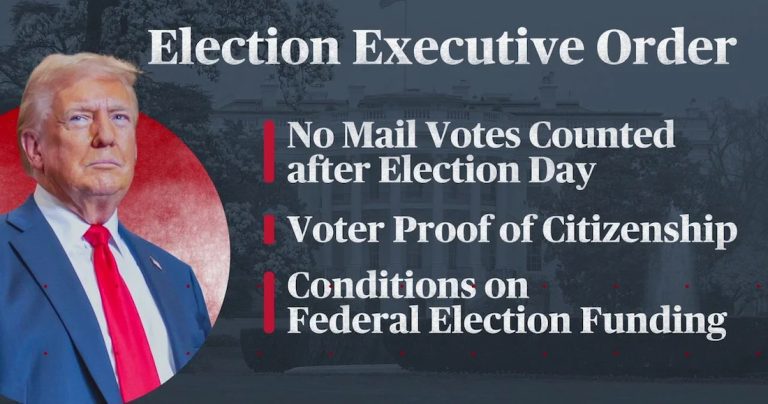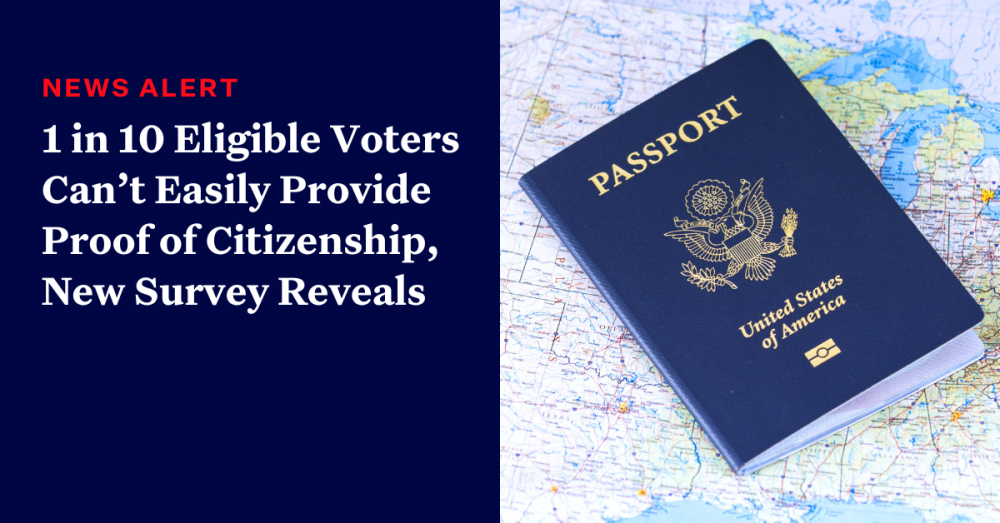
Trump’s Executive Order Mandates Proof of Citizenship for Voters, Sparks Legal and Civil Rights Debate
Washington, D.C. — President Donald Trump has signed a sweeping executive order requiring documentary proof of citizenship to register to vote in federal elections, igniting a nationwide debate over voting rights, federal authority, and the potential impact on millions of Americans.
The order, announced in late March, marks one of the most consequential election reforms of Trump’s current term, and is expected to face immediate court challenges from civil rights organizations and state officials.
A New Federal Standard for Voter Registration
The executive order mandates that all individuals seeking to register to vote in federal elections must provide documentary evidence of U.S. citizenship, such as a passport. This directive modifies the federal voter registration form and compels state and local authorities to verify citizenship before allowing registration. The action also requires all ballots to be received by Election Day, eliminating postmarked ballots that arrive later.
Additionally, the order instructs states to purge noncitizens from their voter rolls, encourages data sharing between state and federal agencies to identify and prosecute election crimes, and authorizes federal agencies to provide states with immigration and Social Security data for voter eligibility checks.
Rationale and Political Context
The Trump administration argues that the order is necessary to “enforce basic and necessary election protections,” citing concerns about election integrity and alleged, though rare, instances of noncitizen voting. Trump has long criticized U.S. election processes, particularly mail-in voting, and has promoted the idea that stricter safeguards are needed to prevent fraud, despite a lack of evidence for widespread issues.
The move bypasses the need for congressional approval of the Safeguard American Voter Eligibility (SAVE) Act, a Republican-backed bill with similar aims that has stalled in Congress.

Legal and Civil Rights Challenges Expected
Voting rights advocates and legal experts argue that the executive order oversteps presidential authority and could disenfranchise millions of eligible voters, particularly naturalized citizens, minorities, and those lacking ready access to citizenship documents. States have traditionally held broad powers over election administration, with federal standards typically set through legislation rather than executive action.
Critics warn that reliance on outdated or incomplete databases could mistakenly flag naturalized citizens as noncitizens, leading to wrongful removal from voter rolls. Previous state-level efforts to purge noncitizens have resulted in eligible voters being excluded.
Civil rights groups are preparing to challenge the order in court, contending that it violates federal law and constitutional protections. They argue that the directive could disproportionately impact marginalized communities and suppress voter turnout.
Broader Immigration Policy Context
The executive order comes amid a broader push by the Trump administration to tighten immigration enforcement and registration requirements. Recent policies have included efforts to register noncitizens and use that information to facilitate arrests, prosecutions, and deportations, further fueling concerns among immigrant communities and advocates.
A spokesperson for the Department of Homeland Security stated that the administration is using all available tools to fulfill Trump’s campaign promises on immigration and election security. The registration process, they noted, is intended to encourage undocumented immigrants to self-identify and leave the country, with the threat of criminal charges and deportation for noncompliance.
State and Local Reactions
Many state election officials have expressed concern about the feasibility and legality of the new requirements. Some states, particularly those with large immigrant populations, have indicated they may resist implementing the order, setting up potential legal and political battles over federal funding and state autonomy.
What’s Next?
The executive order’s implementation timeline and legal fate remain uncertain. As lawsuits are filed and states weigh their options, the debate over voting rights, citizenship, and federal authority is expected to intensify in the lead-up to the next federal election.